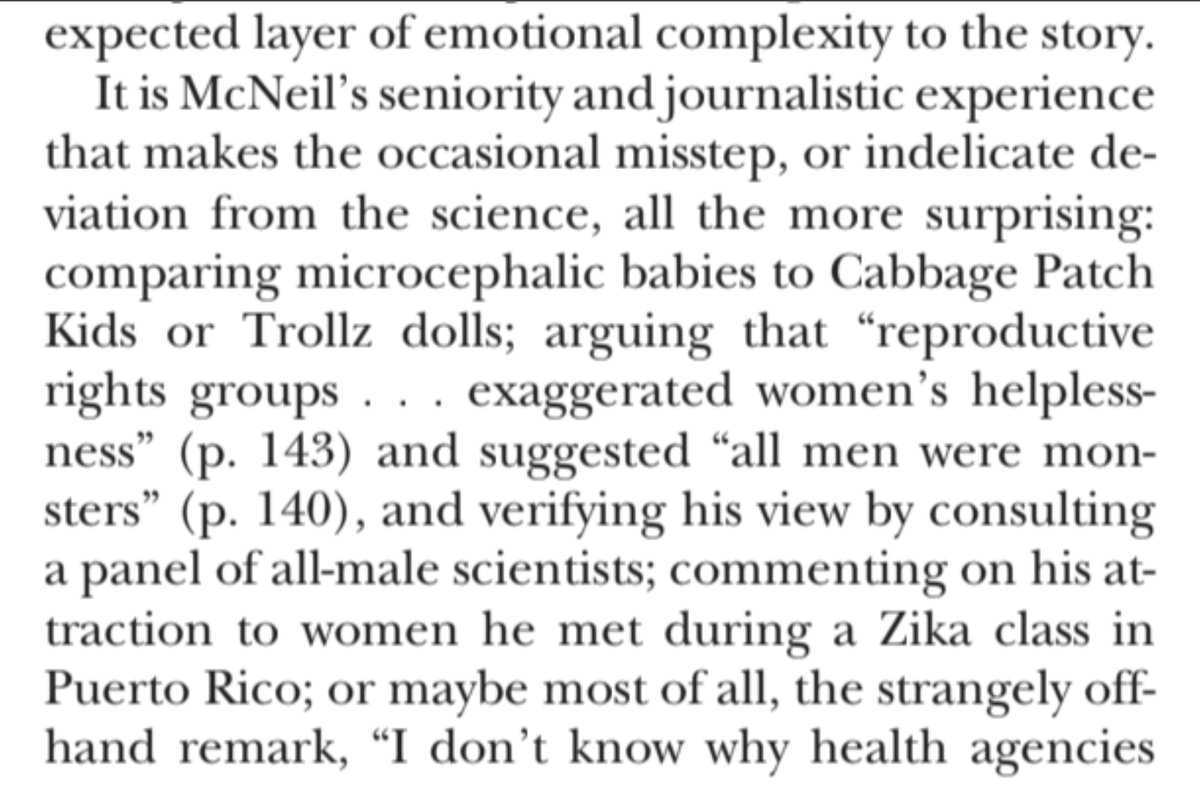
Oh, and McNeil's comment about his "attraction" to women in a Zika seminar in Puerto Rico? He describes the seminar leader as "an attractive young woman." STRING HIM UP!
The fact that QRB flagged those passages as inappropriate suggests that "politically correct" orthodoxy (for lack of a better word) in academic publishing is at absurd levels. (What a surprise.)
Also: While I think Ben's article was fair, the QRB review passage is a bit misleading. A reader could infer that McNeil had disparaged gays (rather than noting that gay sex could be a Zika transmission vector) or gratuitously slammed feminists.
/FIN
/FIN
(Redid this thread because I had a brain glitch and got McNeil's name wrong. LOL Thanks @jenniferm_q !)
• • •
Missing some Tweet in this thread? You can try to
force a refresh









